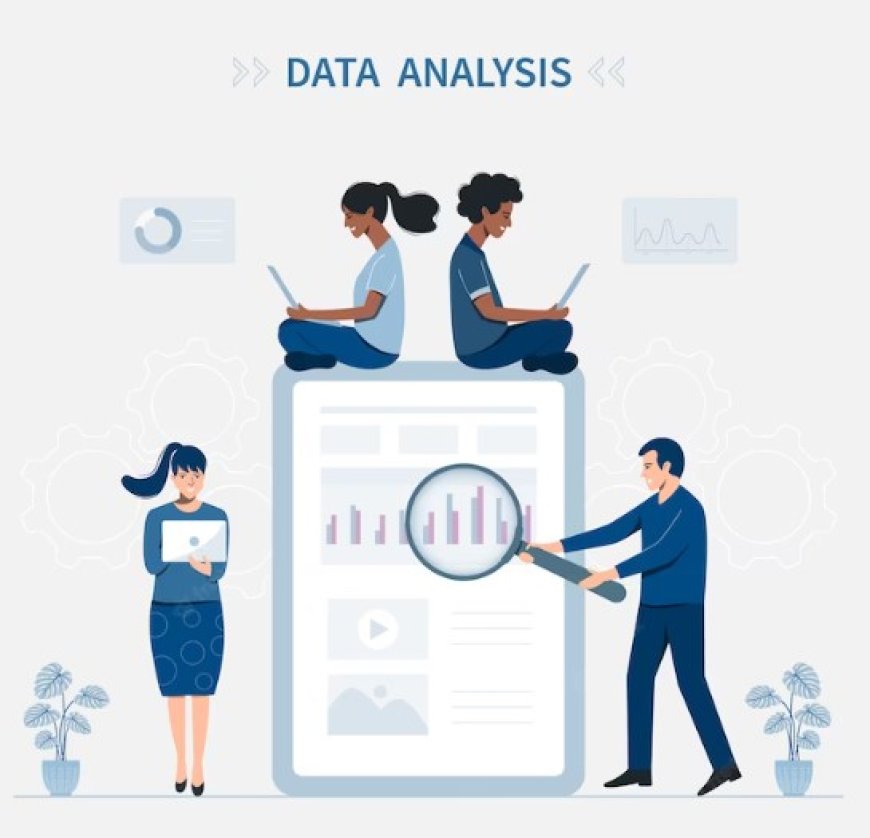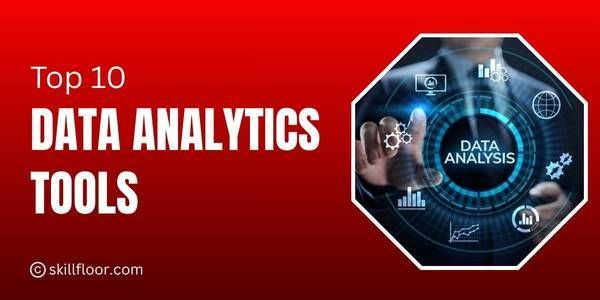The Power of Data: The Importance of Data Analysis
Discover the limitless potential of data analytics. Unleash insights, drive decisions, and stay ahead in the data-driven future. Dive in now!

Welcome to the world of data analysis, where the magic of numbers and insights come together to drive informed decisions, innovation, and success. In this blog, we will delve into the captivating realm of data analysis and explore its immense importance in today's data-driven era. So, fasten your seatbelts and get ready to discover why data analysis is the key to unlocking the hidden potential within your data!
Making Informed Decisions
Data analysis empowers individuals and organizations to make informed decisions. By analyzing data, we gain valuable insights into trends, patterns, and relationships. These insights enable us to identify opportunities, understand customer behavior, and optimize strategies. Whether it's in business, healthcare, or any other field, data analysis ensures that decisions are backed by evidence and maximize the chances of success.
Driving Business Growth
Driving business growth is like embarking on an exhilarating journey towards success. It involves implementing strategies and making decisions that propel your organization forward. Just like a well-tuned engine, driving business growth requires careful planning, adaptability, and a deep understanding of your customers and market dynamics. By focusing on innovation, customer satisfaction, and operational efficiency, you can fuel the growth engine of your business. It's like igniting a spark that sets your organization on a path of expansion, increased market share, and sustainable success. So, buckle up, embrace the challenges, and let your passion for growth drive you towards new heights. The possibilities are endless, and the rewards are worth the journey.
Identifying Trends and Patterns
Data analysis allows us to identify trends and patterns that might otherwise go unnoticed. By analyzing historical data, we can uncover hidden insights and understand how certain factors impact outcomes. This knowledge helps us predict future trends, anticipate market changes, and stay ahead of the competition. Identifying patterns also enables us to detect anomalies, outliers, or potential risks that require attention.
Enhancing Operational Efficiency
Data analysis plays a crucial role in improving operational efficiency. By analyzing process data, organizations can identify bottlenecks, inefficiencies, and areas for improvement. This allows for process optimization, resource allocation, and cost reduction. With data-driven insights, businesses can streamline workflows, eliminate redundancies, and enhance overall operational effectiveness.
Mitigating Risks
Data analysis helps organizations mitigate risks by identifying potential threats and vulnerabilities. By analyzing data and patterns, businesses can proactively identify risks and take necessary precautions to prevent or minimize their impact. Whether it's in finance, cybersecurity, or supply chain management, data analysis equips organizations with the tools to assess risks and implement risk mitigation strategies.
Improving Customer Experience
Data analysis enables organizations to better understand their customers and improve the overall customer experience. By analyzing customer data, organizations can identify preferences, purchase patterns, and pain points. This knowledge allows businesses to personalize their offerings, provide targeted recommendations, and deliver exceptional customer service. Improving the customer experience leads to customer loyalty, positive word-of-mouth, and a competitive advantage.
Fueling Innovation and Research
Data analysis fuels innovation and drives research across various fields. By analyzing research data, scientists can uncover new insights, validate hypotheses, and make groundbreaking discoveries. In industries such as healthcare, technology, and environmental sciences, data analysis provides a foundation for innovation, enabling advancements in treatments, technologies, and sustainable practices.
Improving Efficiency
Data analysis helps organizations identify inefficiencies and bottlenecks in their processes. By analyzing data, businesses can pinpoint areas that need improvement and implement strategies to enhance efficiency. This leads to cost savings, streamlined operations, and increased productivity.
Predictive Analytics
Predictive analytics is like having a crystal ball that gives you a glimpse into the future. It involves using historical data, statistical models, and machine learning techniques to make predictions and forecast future outcomes. It's like a powerful tool that helps you anticipate trends, customer behavior, and market dynamics. By leveraging predictive analytics, you can make proactive decisions, optimize resource allocation, and stay one step ahead of the competition. It's like having a superpower that empowers you to make accurate forecasts and unlock valuable insights. So, embrace the magic of predictive analytics and let it guide you on the path to success in a rapidly changing world.
Risk Management
Risk management is like having a safety net for your organization. It involves identifying potential risks, assessing their impact, and taking proactive measures to mitigate them. Think of it as a shield that protects your business from unexpected surprises and helps you navigate through uncertain waters. By implementing effective risk management strategies, you can safeguard your assets, maintain stability, and ensure the long-term success of your organization. So, embrace risk management as a valuable tool and make it an integral part of your business strategy. Remember, being prepared is always better than being caught off guard.
Customer Segmentation
Data analysis enables organizations to segment their customer base and tailor their marketing efforts accordingly. By analyzing customer data, businesses can identify distinct customer groups, understand their needs and preferences, and deliver targeted marketing campaigns. This leads to higher customer satisfaction, improved conversion rates, and increased customer loyalty.
Identifying Opportunities
Data analysis helps organizations identify new business opportunities and market trends. By analyzing market data, consumer behavior, and industry insights, businesses can uncover untapped markets, emerging trends, and potential niches. This allows organizations to stay ahead of the competition and capitalize on new opportunities.
Data-Driven Decision Making
Data-driven decision making is like having a compass that guides you through the business landscape. It involves using data and insights to inform and support your decision-making process. Rather than relying solely on intuition or gut feelings, data-driven decision making empowers you to make informed choices based on evidence and facts. It's like shining a light in the dark, helping you see the potential outcomes and risks associated with each decision. By embracing data-driven decision making, you can minimize guesswork, reduce uncertainty, and increase the likelihood of success. So, let data be your trusted companion on the journey to better decision making, and watch as your organization thrives in the data-driven era.
Measuring Performance
Data analysis allows organizations to measure and evaluate their performance. By analyzing key performance indicators (KPIs), businesses can track progress, identify areas for improvement, and set benchmarks for success. This enables organizations to monitor their performance, make necessary adjustments, and achieve their goals.
To wind things up, Data analysis is not just a buzzword; it is a fundamental aspect of harnessing the power of data. By analyzing data, we unlock its true potential, gain valuable insights, and make informed decisions. Whether it's in business, research, healthcare, or any other domain, data analysis is the key to success in today's data-driven world. So, embrace the importance of data analysis, invest in robust analytics tools, and foster a data-driven culture within your organization. Let data be your guide to uncover opportunities, drive innovation, and achieve remarkable outcomes. The possibilities are limitless, and with data analysis as your ally, success is within reach. Happy data analysis!




























































